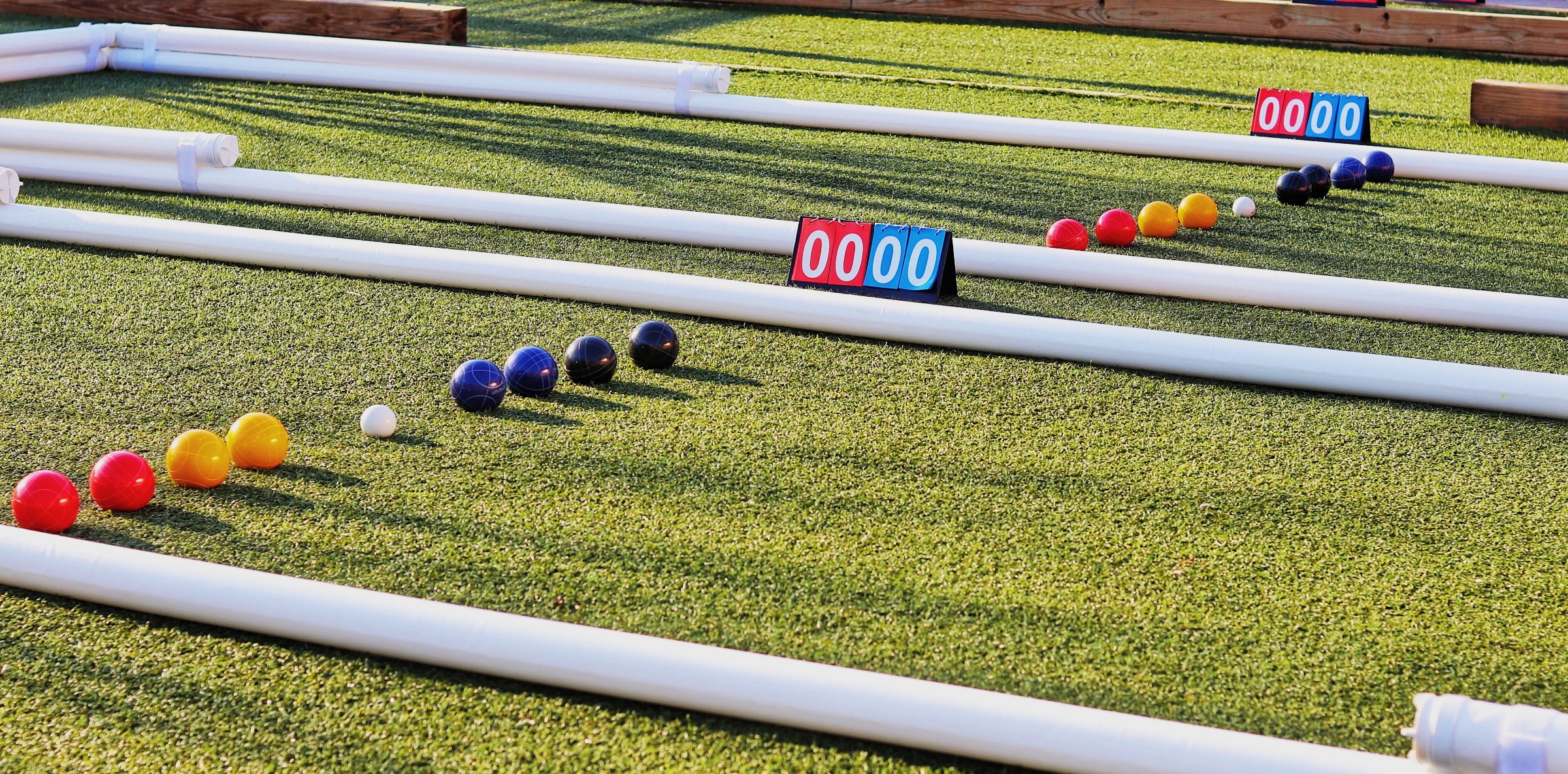
Bocce History
Historians
have gone as far as to call bocce ball the ancestor of all ball games. Bocce is
believed to have originated in Egypt, evidence from an unearthed tombstone from
5200 B.C. showed a painting of children playing bocce ball. It is also believed
the Greeks latched onto the game very early on and introduced it to the Romans.
Then the Romans probably took it on the road via their world conquest and
spread the game Johnny Appleseed style around Europe. Historians imagine, during
breaks in the Punic Wars, soldiers selected a small stone "leader" and threw it
first. Then they rolled, tossed, or heaved larger stones, with those coming
closest to the leader scoring points.
The Egyptian game became bocce in Italy, and was altered slightly to become boules in France and lawn bowls in England. Then Italian immigrants brought bocce to America in the late 19 th century. From then till now, bocce has been played the same way aside from local rules of course.
Bocce has been played in Italy since before Caesars, bocce has
survived the fall of the Roman Empire and the threat of fascism. It has now
evolved to a tournament sport, carrying ever-increasing cash prizes, luring
corporate sponsors and social league play. Throughout its long history, bocce has
created a fun social entertaining environment for everyone.
Why bocce
Bocces' resurgence today is due to the
fact that the sport is no longer confined to adult, or Italian males. It has
escaped its ethnic roots and has become a game for people of all ages. Bocce is an entertaining social endeavor, and it is just plain
fun. Play bocce once and you will be hooked. Most often people have heard of
bocce, but have seldom, if ever, played. After an explanation and a
quick try, they are a bocce expert. Anyone can play, regardless of age, strength
or physical condition. Bocce is equally suited for both sexes. It is about finesse not
fitness. Bocce i
s a sport where you can relax, have a drink in hand, socialize, and fun while you play. It's perfect!






